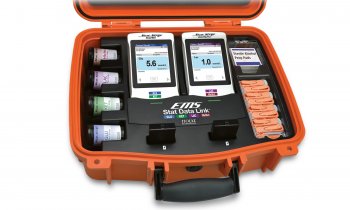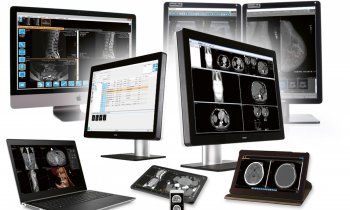The 16th IFHRO Congress
Held every three years, a very important healthcare IT event is to be held in Europe after a gap of 14 years. From November 15-19, healthcare managers and suppliers from 37 countries will arrive in Milan to discuss the future of world’s electronic health services at the 16th Congress of IFHRO (International Federation of Health Records Organisations), held in collaboration with the WHO.

Karoline Laarmann from European Hospital asked congress co-Chair Leonardo la Pietra MD MBA, Chief Medical Officer of the European Institute of Oncology and President of AIDOS (Italian Medical Records Association) for his views on eHealth development in Italy
In Italy, Dr Leonardo la Pietra explained, ‘There are positive and negative signals about the implementation of eHealth. Compared to other sectors, such as eBanking and eTravel, eHealth still lags behind. But a survey published in Rome in February 2010 shows some encouraging figures. In 7% of our country-wide Italian hospitals it is now possible to pay online, in 22% it’s possible to book online, and in 19% it is possible to access digital reports online, such as blood test results. Of course, these figures represent a national average, and we know that some regions have a more advanced eHealth agenda than others.’
In terms of the development of electronic health records and regional e-health networks, he pointed out that Lombardy, Emilia-Romagna and Veneto are the most progressive. ‘But a key issue in Italy, as well as in other European countries, is the lack of communication between the regions, which is preventing a further integration of electronic infrastructure. With the constitutional reforms in 2001 and 2005, Italy introduced a significant level of legislative and financial autonomy for the regions, especially in healthcare. So it can be said that, nowadays, we have 20 regional health systems in the country. Therefore, priorities and investments in eHealth deeply vary from region to region.’
The fear of change
There are, he said, several barriers. ‘The first is on the technology side, in a sense that medical data are not always recorded in electronic form. This makes it impossible to exchange it between healthcare providers. Secondly, it is due to the non- or inadequate technical standards, which means there are interoperability issues. However, on the other hand, there is also a cultural barrier in the heads of healthcare professionals, which is a paradox, because physicians have a high affinity to technology – but they fear change.
‘Even though, they appreciate working with high-end technologies, such as CT or MR scanners, they don’t like new information and communication systems that affect the way they work. This also has to do with the fact that there are some obstacles in the financial and economic areas. Not only is too little invested in eHealth in relative terms, there is also a general uncertainty about the reimbursement of eHealth applications, and even about the legal obstacles, for example privacy issues. Data security includes a range of aspects, such as prevention of unauthorised access.’
How to guarantee data security
Dr la Pietra believes that an initial step would be to minimise the collection of information data and the bulging files still carried around by patients in some hospitals. He also espouses the general belief that the risk of drug administration and treatment selection errors can be reduced by electronic records. ‘Furthermore,’ he added, ‘health information management and scientific research is a rather new topic. For instance, health data stored in biobanks or cancer registries are of paramount importance to scientific research, but bring up the new challenge of ownership questions.’
11.11.2010










